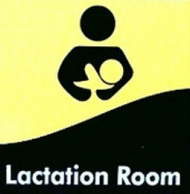 Postpartum doulas from Birthing From Within My friends call me frugal, and boy are they right. I love a good “double ad day” sale and Craigslist as much as anyone can. So it might surprise you to know that I never take the 6am flight. When planning a trip, I used to be persuaded by price. I cleverly locked in the least expensive flight home for the holidays or the least expensive flight to Hawaii, changing my dates and times until I got right down to the cheapest flight possible. Then, the night before the flight I would go into a cold sweat. Knowing that I had to wake up at 3:00 am to drive to the airport and be there two hours early for my 6:00 am departure, I feared I would sleep through my alarm and have to pay a ticket change fee. My sleep was always full of nightmares ranging from packing to missed flights to peeing my pants on the plane because I didn't have enough time beforehand. Driving to the airport, I was always foggy-minded, frustrated, and usually cold. Security was a mess, too. Three hundred people who, just like me, have rarely seen this side of 7 am trying not to appear stoned or start fights in line when they realize they wore their chain mail undies in their rush out the door. I remember thinking: I would totally pay $50 to skip all of this crap and take a 10 am flight like a regular human. And so I do. Each time I pay a little more for my ticket, I know exactly what I'm getting for that $50: a better night of sleep, a reasonable commute, and companionship of humans rather than zombies in the security line. So what does this have to do with a postpartum doula? Were you thinking I posted on the wrong blog? A postpartum doula can change your early parenthood from a string of six am flights to a string of ten am flights for $50 per night or less. Now you may not know what you would be like if you routinely got up at 3:00 am and had to get to the airport early with other zombies. I can assure you that after my thorough travel experiences, it will not do great things to the condition of your personal hygiene, relationships, or sense of humor. I believe that adjusting to your baby routine has the potential to be a little nuts, too. What Postpartum Doulas Do: Help with Breastfeeding. If the last time you experienced breastfeeding was on the other end of the nipple, you likely have some questions about how to latch, how often to feed, how to sleep, and when to enlist the support of a physician and IBCLC. The postpartum doula is like a breastfeeding tour guide with helpful tips and tricks. Infant Care Tips and Support. A lot changes in the first few weeks of a newborn's life! Skin, poop, hair, clothing, bathing, all of those tidbits you didn't know to ask during your childbirth education class are old hat to a postpartum doula. Light Housekeeping. Not all postpartum doulas will do housework, but many will load and unload the dishwasher or washing machine. They will certainly help you understand how to wash baby's laundry and any pumping supplies or supplemental breastfeeding supplies you use. Mama Support. If mom needs a nap or an extended bath, the postpartum doula can offer to sit with the baby and only rouse you if needed. She can also offer information about normal changes your body is experiencing as hormones do a square dance in your bloodstream. Postpartum mood swings are normal, but postpartum mood disorders are something that can be aided dramatically by the right support from a doula or healthcare provider. She will know when you need a good cry and who to refer you to if things get a little darker. Mary Poppins. Some postpartum doulas will offer additional services, like sibling care, light errand running and meal preparation. If you don't have reliable friends and family in town (or if you'd prefer the help without the "additional help" your mother-in-law can offer) find a postpartum doula who will happily step in. Is it worth the money? You should decide what is right for your family. Consider registering for postpartum support rather than crib skirts and decorative borders. Postpartum doulas offer their services in a variety of formats, from daily services to scheduled weekly services, to on-call for middle of the night meltdowns. The nice thing about postpartum doulas is that you don't need to decide in advance of baby being born, but if it sounds like a good option, I recommend retaining their services in advance so you can have the smoothest flight possible. I offer some postpartum services Interested in a Labor Doula?
0 Comments
 If you think this post is about poop, then you're half-right. But that's not the most important half. In the last three weeks I've learned more about breastfeeding than I ever imagined possible. For instance: did you know that there is no research-based evidence that nipple creams are effective? Or that there are federal laws prohibiting the re-use of a personal breast pump? Or that a galactagogue is not an alien species? Well, now you do. So what of this is relevant to soon-to-be mamas? Well, a little bit of all of it. Here are some of my picks of relevant breastfeeding bits that you may not have known, along with some that perhaps you already knew. Breastfeeding is enjoyable: sure, some discomfort in the first two weeks is normal as you and baby figure out how to latch on and get things going. But after that, most mamas find that they enjoy the bonding experience because the act of nursing releases oxytocin, the love hormone. That's handy. Pumping, while great, doesn't offer the same neurological benefits, which is why women rarely drive off into the sunset with their pumps, nor do they pay for them to go to college. Nipple pain and engorgement are not normal: you might hear that these two painful conditions come with the territory, but that is as true as saying that lost luggage is the norm. Sure, it happens to a lot of people, but you don't need to ignore it and should seek help from a lactation consultant* if you feel either of these coming on. Usually both problems are an easy, quick fix. Success is something you get to define: so get on it! If you're interested in giving breastfeeding a try, talk to someone like me or another lactation educator. All CLE's trained by CAPPA will help you determine what success means to you and help connect you with the resources you need to meet your personal definition. No judgement. It is incredibly likely that you will provide all the milk your baby needs. A lot of companies will send you messages like "in case you don't make enough/your milk isn't good enough," but that is because they want you to buy what they are selling. Your milk is made on demand and offers the perfect balance of everything that your baby needs. Babies will start to want iron-rich foods at about six months of age, and that's when they will normally need additional food. When in doubt about supply or supplementation, always talk to an IBCLC. Don't trust everything you read on the internet (including this). Why? Because you may drop everything to run out and buy cabbage leaves when all you need is a cold compress. There are lots of old wives tales about breastfeeding, and some of them are accurate, some are harmless, and some are incredibly dangerous. I like La Leche League International for easy to read and access information. Be wary of the resources you use, and consider their motivations. Are they trying to sell you a product? And does that product involve you breastfeeding more or less? Exclusively breastfed babies' $#it doesn't stink. This was the most mindblowing of everything I learned. If you need proof, this is a great time to explore chat rooms and facebook groups. Babies who drink only human milk make poop that smells a little like buttermilk and is easy to wash out of cloth diapers and clothing. Now that's a party trick I can get behind! *in an upcoming blog post I'll explain all of the different professionals who specialize in breastfeeding so you know the lingo. I always recommend an Internationally Board Certified Lactation Consultant (IBCLC).  Photo: Love Roots Photography It will not surprise you to learn that I love planning. Outranked only by spontaneous napping and eating figs, planning is how I get my jollies most days of the week. As a stage manager, I have loved calling the shots, planning the transitions perfectly, and quickly taking control when things start heading off track. Stage managers love consistency, plans, and consistency (and licorice). So you might rightly feel astonished to learn that I'm not a huge fan of birth plans. For this, I refer to my dear departed friend Dwight D. Eisenhower, who was well known for the statement, "Plans are nothing; planning is everything." I don't otherwise have strong feelings about Dwight, but in this instance I am on board. Birth is dynamic. It is impossible to control, even by the most controlling of women, doctors, doulas, and stage managers. Birth, my friends, is like the weather. While I believe that walking into a birth with a play-by-play, line-by-line plan isn't helpful, I believe the act of planning for birth is crucial. Imagine first that you are planning a wedding. You first select the location, the people who are important participants, the ceremony, the dress, the cake, the favors, and the officiant. Each of these is selected based on your values. Wedding locations (and associated values): Public park with free parking, restrooms, and negligible fee for area rental (values: cost-savings, accessibility, nature) Five star hotel with valet parking, wedding planner, and "free" bridal suite (values: luxury, reliability, contingency-averse) Write out your "dream birth" and include the who/what/when. Then assign values as follows. For instance: "I would like to give birth at home because I value privacy/intimacy/cost-savings" or "I would like to give birth in a birth center because I value security/access to medical equipment/planning for all contingencies." Work with your provider, your doula, your partner, and describe not only the hopes you have for your birth, but the values you attribute to those "plans." Knowing that things will not follow a step-by-step outline, your birth support team will have the ability to make suggestions and/or decisions that are more in line with your values. And this will result in the best possible birth outcome. No one can control the weather, but knowing that you value safety over a rigid plan will allow your "wedding planner" (birth partner/doula) to divert you to an interior space if a storm threatens your beach-wedding, or to rally the coast guard and proceed under their watchful eye.  When you're forming your baby registry, you are encouraged to add a billion different varieties of pacifiers for different ages, genders, and occasions. Some have convenient snaps and buttons so they don't tumble out of the carseat, and others have favorite characters (cleverly aimed away from baby's view). If you receive any, you're likely to get many opinions on whether or not to use a paci. Like every other parenting decision, you're on your own for this one. You get to decide whether using a pacifier is the right choice for your baby. Here are some things to consider: 1. The American Academy of Pediatrics recommends the use of an artificial nipple (they don't use pacifier in their verbiage) for healthy, full term babies who are 4 weeks old or older. They recommend their use for preventing SIDS, to aid with sleep, and to help with any painful procedure in the ER. 2. Using artificial nipples in the first four weeks of a baby's life (unless medically necessary) can confuse the baby and present some breastfeeding challenges. Human nipples work differently and sometimes after a baby becomes used to an artificial nipple it can be frustrating to go back to a human nipple. 3. If a pacifier is routinely used to pacify a fussy newborn, that baby may not nurse as frequently as it needs to. 4. BPA is not currently prohibited in infant products in the US. Zrecs offers some advice about choosing a paci that is BPA free, if this is important to you. 5. There are many ways to feed an otherwise healthy, full term baby than using an artificial nipple. If you've been informed that bottle feeding is your only option and you'd like to know more about other methods, find an IBCLC who can give you a full spectrum of options for your specific challenge.  Pregnant mama: "Going to a wedding next week... have to buy a dress." "Oh, where are you shopping?" "REI." If visions of tablecloths and tents dance in your mind when considering formal wear, let me help to allay your fears. Find gratitude that you are pregnant now rather than in the hideous 1980's, when maternity fashion involved oodles of pleats, <--- "Pay no attention to the belly behind the curtain!" While I fully believe that the sari is the best fashion choice of all time because it easily adapts from day to day and a muumuu might be the most comfortable choice, I rarely see women wearing either of these frocks at prenatal yoga (nor do I see them out and about). What I have seen and heard about are some great ideas and resources that will help you avoid the camping section and keep a few extra dollars in your pocket. BORROW: The hairband button hole trick: early on in pregnancy (and longer for low-rise pants) most women find an easy way to extend their favorite jeans and other pants with a button closure involves a sturdy hair tie. Simply loop the hair tie through the hole, then through itself, and hook it over the button. Sturdy is the key word here. The big event: (not that big event). If you have a wedding, baby shower, movie premier, or cocktail party to attend, you may not want to purchase a dress you'll wear only once, particularly at maternity prices. There are a few places where you can borrow maternity wear for a month (or many) and pay much less than the cost of the item. Borrow for your Bump is one place you can find some good options. They also offer some other pieces for rental and offer a range of sizes. When your body changes daily, you don't want to buy a new outfit for only two weeks. Foldover skirt or pant: particularly useful for prenatal yoga, many pants and some skirts come with a little extra band of fabric on top that folds over. I'm not sure what the original purpose is for these features, but they come in handy as the lycra stays up around any territory it needs. Borrow this from your pre-pregnancy wardrobe, or head to your favorite big box store to buy one or two pairs. BUY: Belly band: many stores offer this quasi-tube top designed to be worn under your shirt and over your pants. It creates a layering look that covers your skin and can help hold up pants that are a little beyond the hair tie trick. These are also useful after baby is born if you are breastfeeding in public and you need to lift your shirt. You can keep your tummy covered and warm while feeding. Nursing bra top: the belly isn't the only thing taking up more real estate, and purchasing new bras might seem like a ridiculous additional expense when you'll just have to buy more later! Nursing bras and tops are designed for a larger bust and will also come in handy after baby is born. If you're feeling uncomfortable, especially if your middle and upper back are bothering you, The Ladies might need a little more support. |
About meI'm one of those people who loves making your life easier (and I believe in you). I am an experienced registered prenatal yoga teacher and a lactation educator. Want more? My monthly newsletter might be for you.
Archives
April 2014
Categories
All
|
 RSS Feed
RSS Feed
